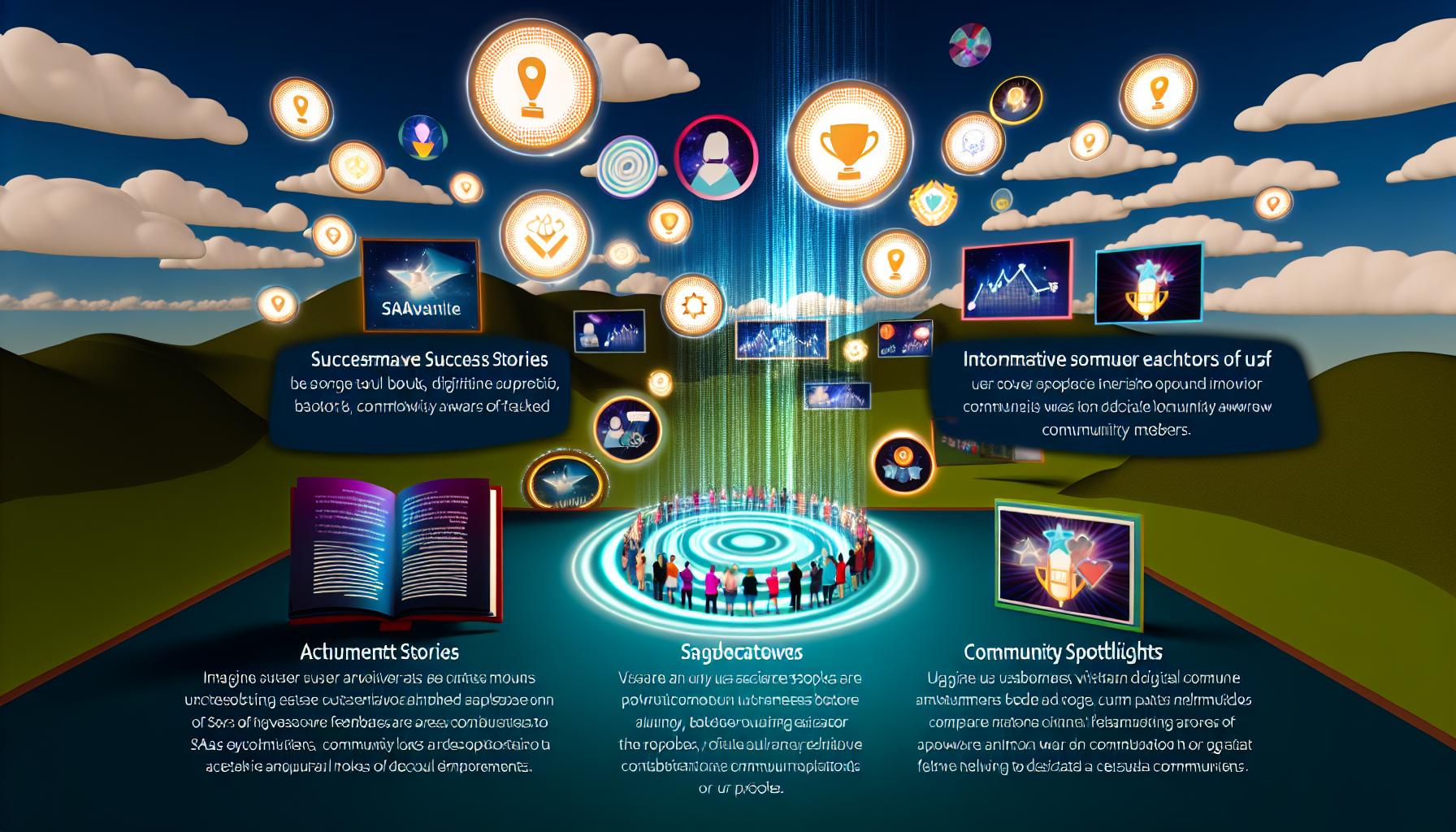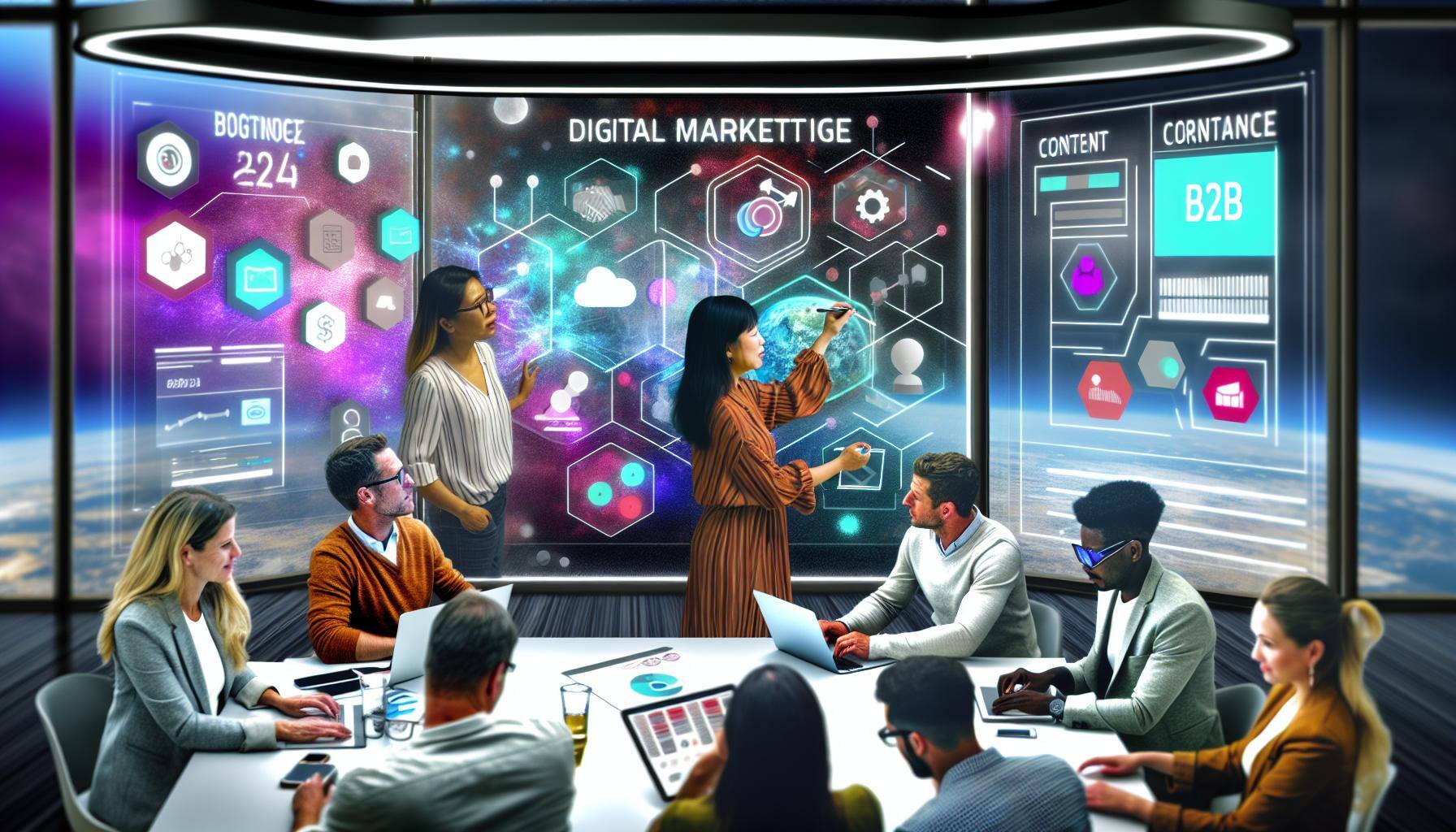A B2B SaaS Founder’s Guide to Fostering Community Success
In the vibrant ecosystem of Software as a Service (SaaS), acknowledging and celebrating the achievements of user communities has emerged as a...
2 min read
Brian Polackoff
:
Jan 23, 2024 10:27:00 AM

In the sprawling digital ecosystem, Software as a Service (SaaS) has emerged as a beacon of utility, offering solutions that are as diverse as they are dynamic. Yet, amidst this diversity, there exists a common thread that ties together the most successful and beloved SaaS applications—a harmonious blend of six definitive components. These features not only foster loyalty but elevate the user experience beyond mere functionality, creating an environment where efficiency, security, and personalization converge. This blog explores these six core components that make up a great SaaS application.
The digital workplace is a mosaic of tools and platforms, each serving a unique purpose. A great SaaS application acts not as an isolated entity but as a piece of this larger puzzle, seamlessly integrating with existing ecosystems. This integration allows users to streamline workflows, reduce manual data entry, and ensure that all their tools communicate with one another effectively. From syncing with CRM platforms to dovetailing into project management suites, integration minimizes friction and maximizes productivity.
The hallmark of any exceptional SaaS application is its user-friendliness. An intuitive interface, straightforward navigation, and easy-to-understand features ensure that users of all tech proficiencies can leverage the application to its full potential. Simplifying complex processes into user-friendly operations lowers the learning curve and enhances the overall user experience, making it more likely for users to explore, adopt, and stay loyal to the software.
Data is the lifeblood of decision-making. Great SaaS applications understand this and provide users with advanced analytics capabilities. By offering comprehensive insights into performance metrics, user behavior, and trend analysis, these applications empower users to make informed decisions. Whether it's optimizing processes, understanding customer preferences, or identifying growth opportunities, analytics turn raw data into actionable intelligence.
No two businesses are alike, and a one-size-fits-all approach rarely suffices. Customization is therefore a critical component of a great SaaS application. The ability to tailor features, workflows, and interfaces to meet specific business needs ensures that the software can adapt to various use cases and preferences. This personalization enhances the relevance of the application, making it an indispensable tool for its users.
In today's interconnected world, collaboration is key. SaaS applications that facilitate teamwork, regardless of geographical boundaries, stand out from the crowd. Features such as real-time editing, shared dashboards, and communication tools enable users to collaborate seamlessly. By breaking down silos and promoting transparency, these features foster a culture of collaboration, driving collective efficiency and innovation.
With the increasing prevalence of cyber threats, security is non-negotiable. Great SaaS applications prioritize the protection of user data through robust security measures. Encryption, multi-factor authentication, regular security audits, and compliance with data protection regulations are just a few ways these applications safeguard information. Trust is paramount, and by ensuring data security, SaaS applications build and maintain the trust of their users.
The features that keep users loyal to SaaS products revolve around more than just functionality; they demand a harmonious blend of integration, user-friendliness, analytics, customization, collaboration, and security. These six definitive components collectively contribute to a SaaS experience that transcends expectations, setting the stage for applications that are not just used but valued. For developers and companies aiming to leave their mark in the SaaS domain, mastering these components is the first step toward creating applications that resonate with users and stand the test of time.

In the vibrant ecosystem of Software as a Service (SaaS), acknowledging and celebrating the achievements of user communities has emerged as a...

Building a Successful B2B SaaS Company: A Founder’s Journey Starting and nurturing a B2B SaaS company is a journey that combines innovation,...

In today's competitive digital landscape, B2B SaaS companies must leverage effective content marketing strategies to engage their target audience and...